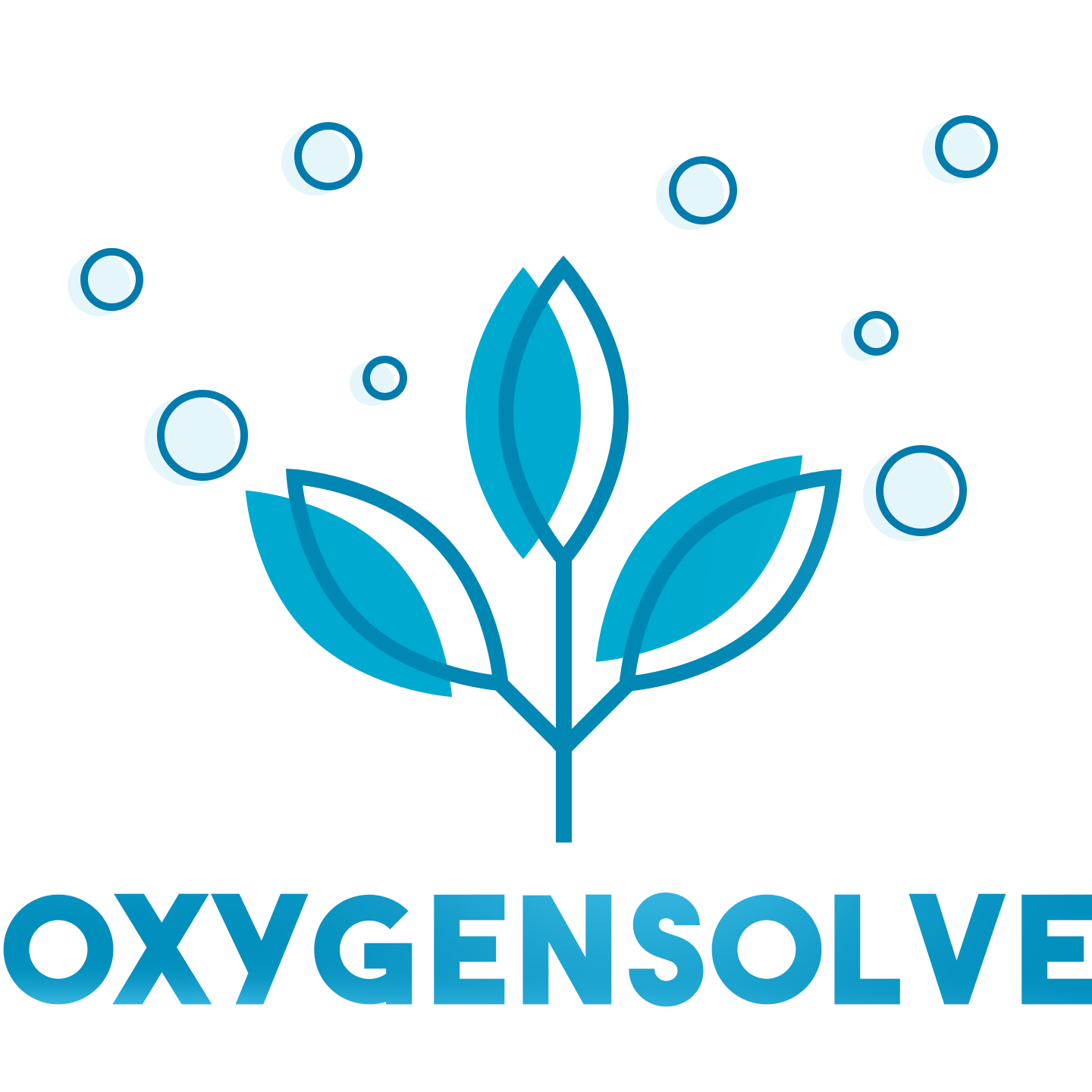Maintaining Optimal Respiratory Health: The Importance of Proper Oxygen Concentration Levels
CODE
Having enough oxygen circulating throughout your body is crucial for maintaining good health. Oxygen is vital for your cells to function properly, and a lack of it can lead to a variety of health problems. This article explores the importance of proper monitoring for high oxygen concentration levels for respiratory health and introduces Oxygensolve's line of 1-5L Portable oxygen Concentrator designed to support healthy oxygen levels.
The Importance of Oxygen for Your Body
- Energy Production: Oxygen is essential for cellular respiration, the process by which your cells convert glucose into energy. Without sufficient oxygen, your cells cannot produce enough energy to function correctly, leading to fatigue and weakness.
- Organ Function: Every organ in your body relies on oxygen to function properly. The brain, heart, lungs, and muscles are particularly sensitive to low oxygen levels.
- Waste Removal: Oxygen also plays a role in removing waste products from your cells. When your cells don't have enough oxygen, they can't function efficiently and may start to produce harmful substances.
How Can Oxygen Levels Become Low?
Several factors can contribute to low oxygen levels in the blood, including:
- Respiratory illnesses: Chronic obstructive pulmonary disease (COPD), asthma, and pneumonia can all make it difficult for your lungs to take in oxygen and release carbon dioxide.
- Heart disease: Heart failure can prevent your heart from pumping blood effectively, which can lead to low oxygen levels in your tissues.
- Altitude sickness: As the altitude increases, the air pressure decreases, leading to a lower concentration of oxygen in the atmosphere.
- Anemia: A lack of red blood cells, which carry oxygen throughout the body, can also lead to low oxygen levels.
Symptoms of Low Blood Oxygen
If you're experiencing any of the following symptoms, it could be a sign of low blood oxygen levels:

- Shortness of breath
- Rapid breathing
- Chest pain
- Wheezing
- Confusion
- Fatigue
- Bluish tint to the skin (cyanosis)
What is a Blood Oxygen Level Test?
Knowing your blood oxygen level can be an important tool for monitoring your respiratory health. There are two main ways to measure blood oxygen levels:

- Pulse Oximetry: This is a non-invasive test that uses a clip placed on your fingertip or earlobe. The clip shines a light through your skin to measure the amount of oxygen carried by your red blood cells. Pulse oximetry is a quick and painless way to assess your oxygen saturation (SpO2), which is the percentage of hemoglobin (the oxygen-carrying protein in red blood cells) that is bound to oxygen. A healthy SpO2 level is typically between 95% and 100%.
- Arterial Blood Gas (ABG) Test: This test involves drawing a small blood sample from an artery, usually in the wrist. The blood is then analyzed to measure various parameters, including oxygen pressure (PaO2) and carbon dioxide pressure (PaCO2). An ABG test is a more precise measure of blood oxygen levels compared to pulse oximetry, but it is also more invasive.
Importance of Maintaining Proper Oxygen Levels
Maintaining optimal oxygen concentration levels is critical for overall health and well-being. When your body has the oxygen it needs, you'll have more energy, experience better organ function, and be less susceptible to illnesses.
|
Blood oxygen levels |
Indication |
|
95%- 100% |
Normal reading |
|
91%- 94% |
Insufficient oxygen levels |
|
Below 91% |
Low blood oxygen level |
|
Below 85% |
Very low oxygen levels (Hypoxemia) |
|
Below 80% |
Severe Hypoxemia |
|
Below 67% |
Cyanosis |
Introducing Oxygensolve's Portable Oxygen Concentrators
Oxygensolve offers a range of portable oxygen concentrators designed to provide supplemental oxygen therapy to individuals with respiratory conditions or those traveling to high altitudes.
Oxygensolve offers a range of POCs to cater to various needs:
- 1-5L Portable oxygen Concentrator NT-01: This ultra-portable concentrator weighs only 6.5 lbs and features an adjustable flow rate up to 5 L/min with a stable 93% oxygen concentration.
- 1-5L Portable oxygen Concentrator NT-02: This lightweight (4.85 lbs) POC boasts a long-lasting battery (3-4 hours) and dual oxygen delivery modes (pulse and continuous flow).
- 1-5L Portable oxygen Concentrator VT-1: Designed specifically for in-car use, the VT-1 is compact, user-friendly, and compatible with most vehicles' 12V power ports. It offers both continuous and pulse flow modes.
Key Features of Oxygensolve's Portable Oxygen Concentrators
- Lightweight and Portable: Our 1-5L Portable oxygen Concentrators are designed to be compact and easy to carry, making them ideal for home use, travel, or on-the-go activities.
- Adjustable Oxygen Flow: The flow rate of oxygen can be adjusted to meet individual needs.
- High Oxygen Concentration: Our 1-5L Portable oxygen Concentrators deliver a consistent concentration of oxygen, ensuring optimal respiratory support.
- Long Battery Life: Some models, like the NT-02, boast extended battery life for uninterrupted oxygen therapy.
- Dual Oxygen Delivery Modes: Certain concentrators offer both pulse flow and continuous flow modes, allowing users to choose the most comfortable option.
- Safe and Easy to Operate: All our 1-5L Portable oxygen Concentrators are equipped with safety features and user-friendly controls.
FAQ about Portable Oxygen Concentrators and Oxygen Levels
- What is a safe oxygen concentration level in a POC?
A safe oxygen concentration level for a POC will vary depending on your individual needs and medical condition. A doctor will determine the optimal level for you.
- Can I adjust the oxygen concentration level on a POC?
Most POCs allow for adjustments in the oxygen flow rate, which indirectly affects the delivered oxygen concentration. However, specific settings will depend on the model.
- How often should I monitor my oxygen concentration level?
Your doctor will advise you on the frequency of monitoring your oxygen levels. This may involve using a pulse oximeter at home or during clinic visits.
Remember, maintaining healthy oxygen concentration levels is vital for your respiratory health. By understanding the importance, exploring lifestyle changes to improve oxygen intake, and consulting a doctor about potential POC use, you can take proactive steps to breathe easier and live fully.
Conclusion: Breathe Easy, Live Fully with Optimal Oxygen Levels
Understanding oxygen concentration levels is vital for maintaining respiratory health. This blog post explored the importance of oxygen for cellular function and how low oxygen levels can impact your well-being. We also discussed ways to improve your blood oxygen levels and introduced the VT-1 portable oxygen concentrator, specifically designed for in-car use.
Taking Charge of Your Respiratory Health
Maintaining optimal oxygen levels is crucial for feeling your best. Here are some key takeaways:
- Prioritize a healthy lifestyle: Eat a balanced diet, exercise regularly, and quit smoking to support healthy oxygen intake.
- Monitor your oxygen levels: If you have a respiratory condition, consult your doctor to determine if monitoring oxygen levels is necessary.
- Explore oxygen therapy options: For individuals with chronic respiratory conditions, a doctor might recommend supplemental oxygen therapy using a portable oxygen concentrator (POC).
Remember, maintaining healthy oxygen concentration levels is crucial for your overall well-being. Don't wait to address any respiratory concerns. Take control of your breath and experience the freedom that Oxygensolve's innovative 1-5L portable oxygen concentrators can offer. Breathe easy, live fully!























